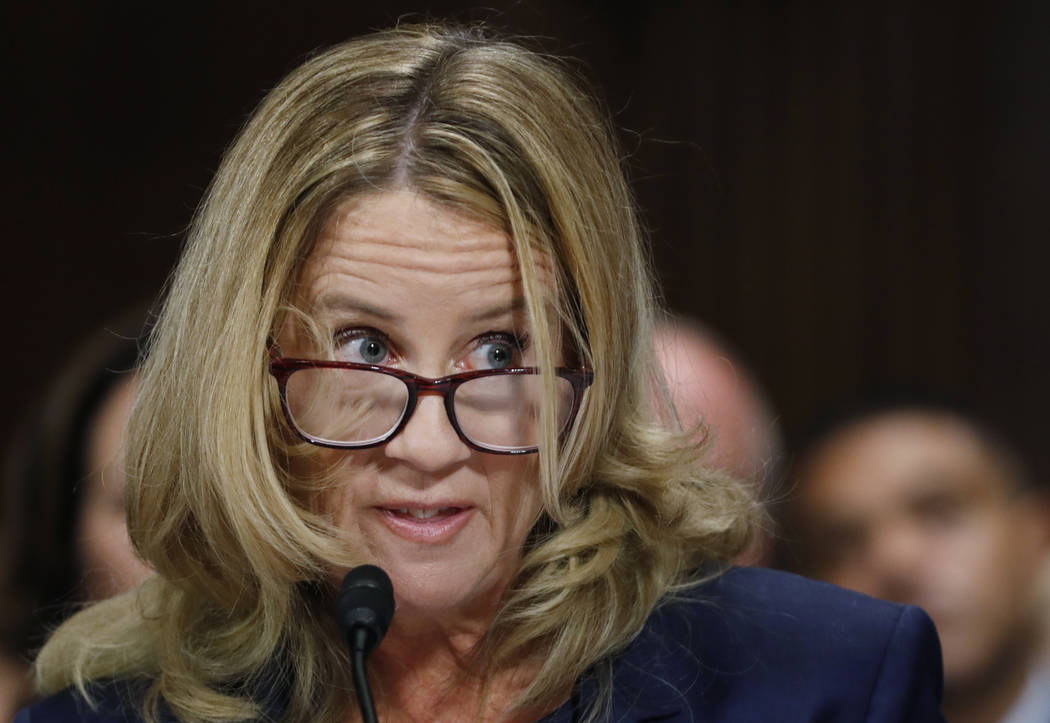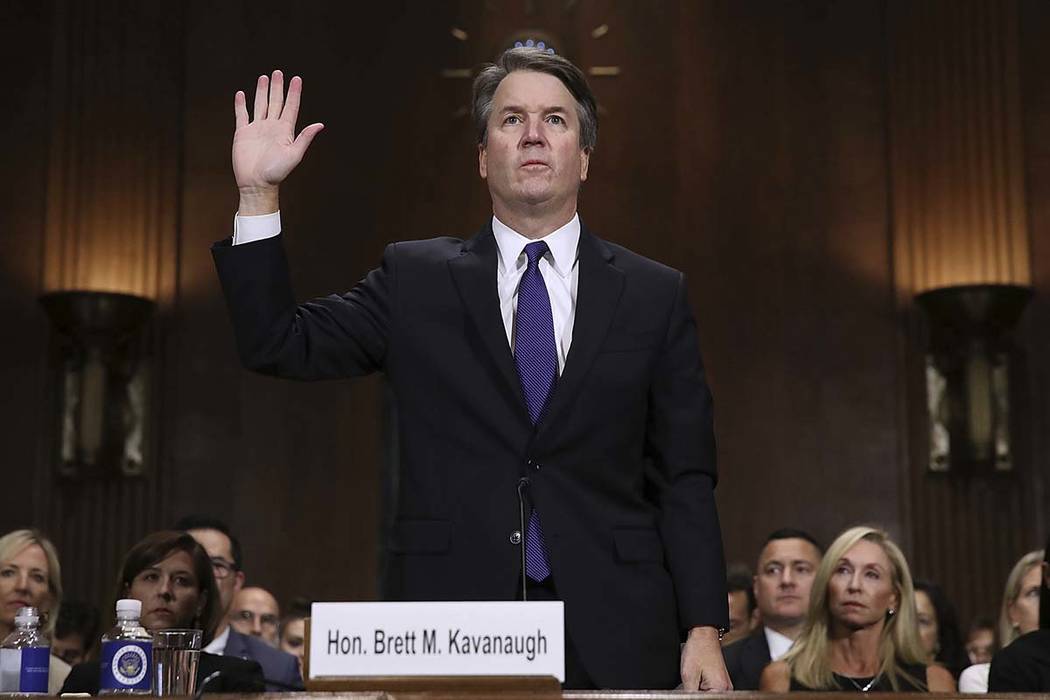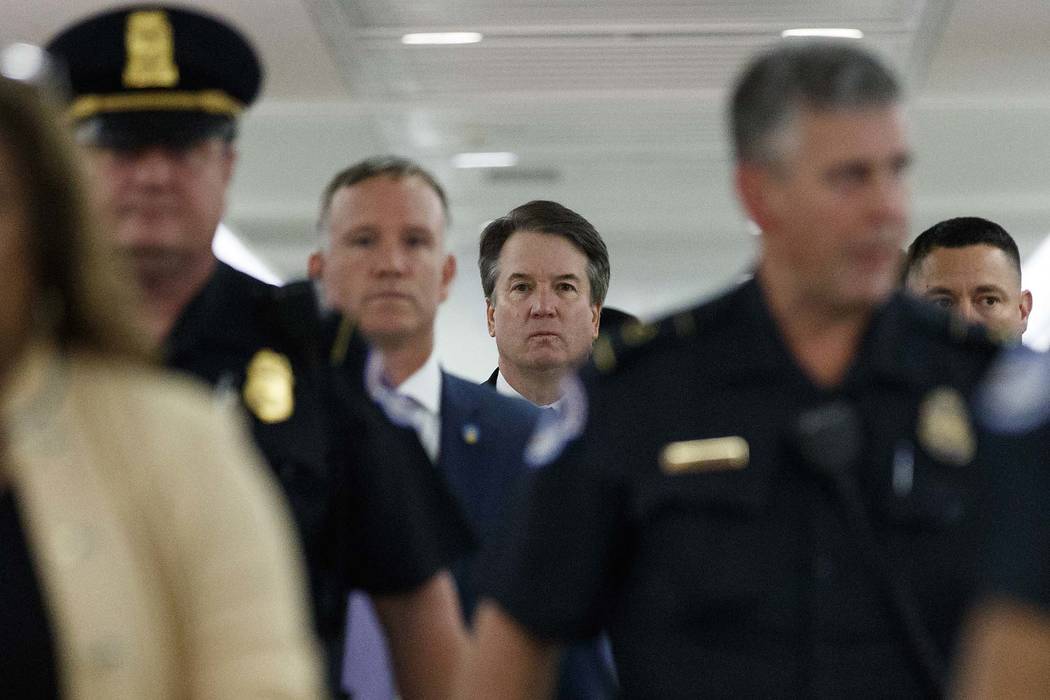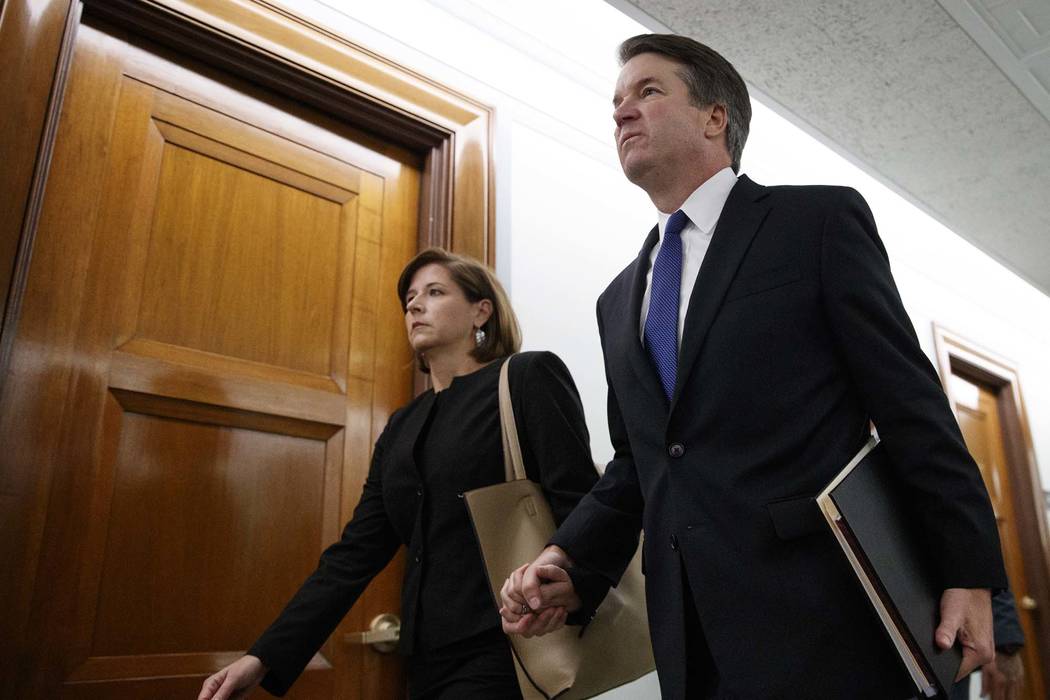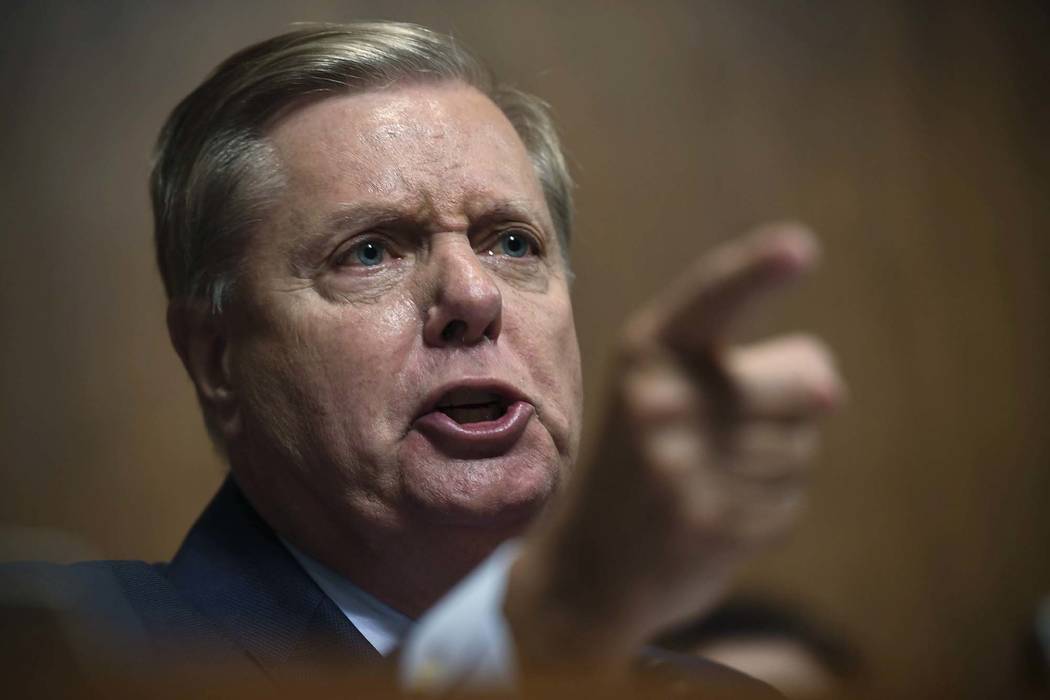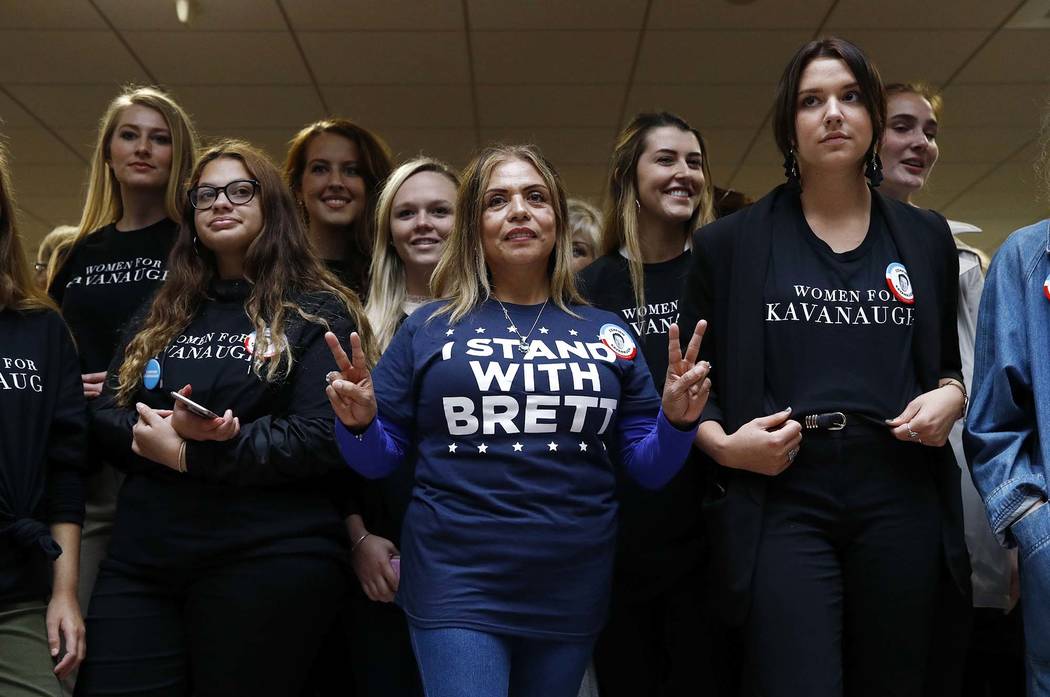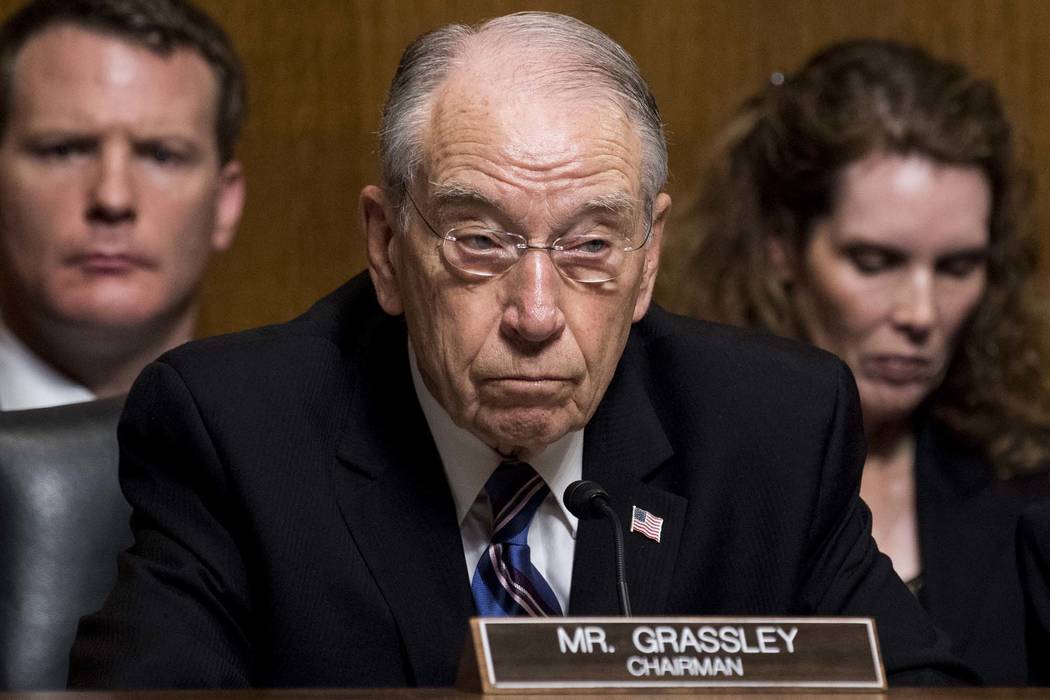Emotions or evidence? Thoughts on Ford, Kavanaugh
What do you do when two gripping personal narratives contradict each other? Your answer to that question will inform your thoughts on Thursday’s testimony by Christine Blasey Ford and Brett Kavanaugh.
Ford has accused Kavanaugh of sexually assaulting her around 1982 when both were high school students. Her testimony didn’t provide any new information to corroborate her claims, but her emotion was visible for all to see. She projected a genuine belief that Kava- naugh assaulted her.
If appearing to be sincere were enough, you might have stopped right there and drawn conclusions. Senate Democrats, who’ve sacrificed the pursuit of truth to get maximum political advantage from Ford’s allegation, certainly hope you did. Some have even been explicit that Kavanaugh must prove his innocence. That’s all but impossible to do when the accuser provides neither a date nor a location of the alleged incident. It also contradicts the principle that the accuser bears the burden of proof.
Kavanaugh, seeking a Supreme Court seat and testifying after Ford, denied her allegations in an emotionally compelling statement. He never attacked Ford personally or questioned that she once endured a horrifying assault. He powerfully proclaimed his own innocence.
If only there were something we could turn to when two people sincerely present conflicting versions of an event. Oh, wait. There is. It’s called evidence. Thursday’s hearing was a reminder that the evidence is squarely on Kavanaugh’s side.
Ford said she doesn’t remember when or where the attack took place. She said she was driven home from the party but doesn’t remember who took her home. That would be a key witness who could speak to what Ford’s emotional state was like after she claims to have been sexually assaulted and feared she might die. But Ford can’t remember who it was. She said she didn’t even speak of the incident for decades.
Ford’s named three people who attended the party, not including Kavanaugh. All three — including Leland Ingham Keyser, a lifelong female friend — deny they attended such a party. Keyser further said that she never even knew Kavanaugh. Asked why her friend would say that, Ford bizarrely talked about Keyser’s health.
Ford also can’t keep her story straight about how many people were at the party. Her letter to Sen. Dianne Feinstein said there were four others at the party. The statement Ford wrote out before taking a lie detector test said four boys and couple of girls where there. She’s contradicted key details of her own story within the past two months.
Other oddities. She said she didn’t know who paid for her lie detector test. She admitted that Feinstein’s office recommended one of her lawyers. She refused to turn over 2012 therapist notes she had shown The Washington Post.
Republicans had wanted this hearing to happen last Monday. Media reports said that was too soon, because she was afraid of flying. But Ford admitted to flying to the hearing and to far-off destinations, including Costa Rica and Polynesia.
When testimony conflicts, you must rely on the evidence. If you’re willing to set aside emotion, in this case, the evidence strongly supports Kavanaugh’s claims of innocence.
Victor Joecks’ column appears in the Opinion section each Sunday, Wednesday and Friday. Contact him at vjoecks@reviewjournal.com or 702-383-4698. Follow @victorjoecks on Twitter.



